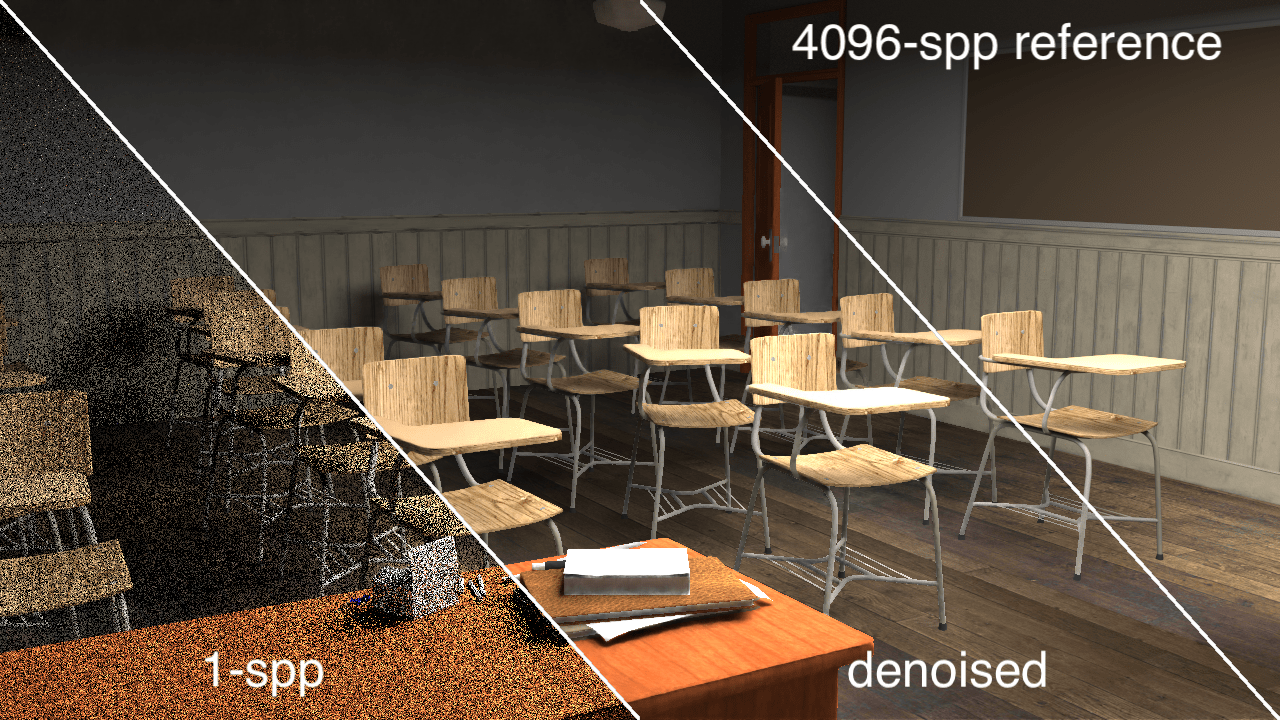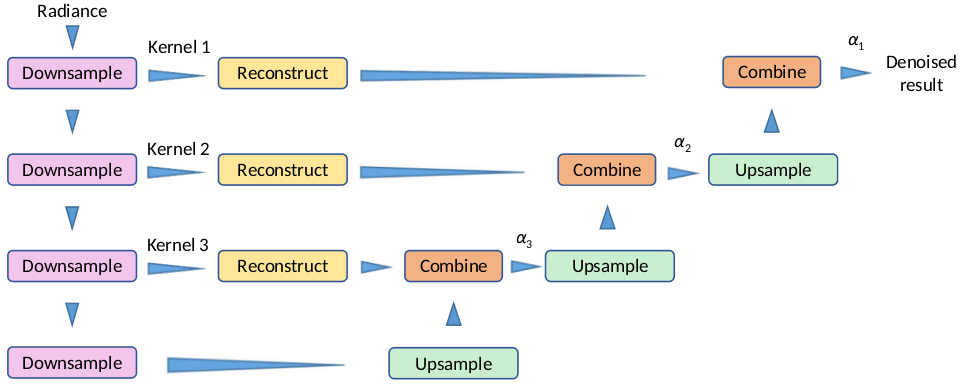A Multi-Resolution variant of Kernel Prediction CNN (MR-KP) denoiser
We have adapted the Multi-Resolution Kernel Prediction CNN (MR-KP) denoiser, which decreases the run time of a basic kernel prediction architecture to the order of tens of milliseconds (35ms on a Nvidia RTX 2080 GPU).

If you find this implementation useful in your research, please consider citing:
@article{10.1145/3072959.3073708,
author = {Bako, Steve and Vogels, Thijs and Mcwilliams, Brian and Meyer, Mark and Nov\'{a}K, Jan and Harvill, Alex and Sen, Pradeep and Derose, Tony and Rousselle, Fabrice},
title = {Kernel-Predicting Convolutional Networks for Denoising Monte Carlo Renderings},
year = {2017},
issue_date = {July 2017},
publisher = {Association for Computing Machinery},
address = {New York, NY, USA},
volume = {36},
number = {4},
issn = {0730-0301},
url = {https://doi.org/10.1145/3072959.3073708},
doi = {10.1145/3072959.3073708},
journal = {ACM Trans. Graph.},
month = jul,
articleno = {97},
numpages = {14},
keywords = {global illumination, Monte Carlo denoising, Monte Carlo rendering}
}
@inproceedings {Meng2020Real,
booktitle = {Eurographics Symposium on Rendering 2020},
title = {{Real-time Monte Carlo Denoising with the Neural Bilateral Grid}},
author = {Xiaoxu Meng, Quan Zheng, Amitabh Varshney, Gurprit Singh, Matthias Zwicker},
year = {2020},
publisher = {The Eurographics Association},
}
- Python3
- TensorFlow 1.13.1
- Pillow 6.1.0 (or newer)
- scikit-image 0.16.1 (or newer)
- OpenEXR 1.3.2 (or newer)
- Clone this repo, and we'll call the directory
${MCDNBG_ROOT}. - Download pre-trained models "classroom" and put the pretrained model to
${MCDNBG_ROOT}/classroom/model. - Download the 1-spp dataset (19GB) or the packed testdata for scene "classroom" (1.4GB). If you are using
- Recompile the bilateral kernels by running
cd 0_kernel_functions
./kernel_filter.sh
cd ..
cd 0_upsampling
./upsampling.sh
cd ..
- Apply the denoiser by running
python network_test.py
- Input
- If you use the 1-spp dataset (19GB), please change the data-path in the argument list:
python network_test.py -d ${your-data-path}- if you use the packed testdata for scene "classroom" (1.4GB), please put the tfrecords file in
${MCDNBG_ROOT}.
- There are a few options in the arguments:
--export_exr ## export the exr file of the 1-spp radiance, denoised image, and ground truth --export_all ## export all the denoised images from the lower-resolution layers
- Evaluate the outputs by running:
python evaluation.py -d "classroom"
- The per-frame PSNR, SSIM, RMSE, SMAPE, and relative-MSE are saved in
${MCDNBG_ROOT}/classroom/result/evaluations - The SSIM errormaps and relative-MSE errormaps are saved in
${MCDNBG_ROOT}/classroom/result/evaluations
Run "python network_train.py"
Please visit our implementation of MR-KP for more information.

